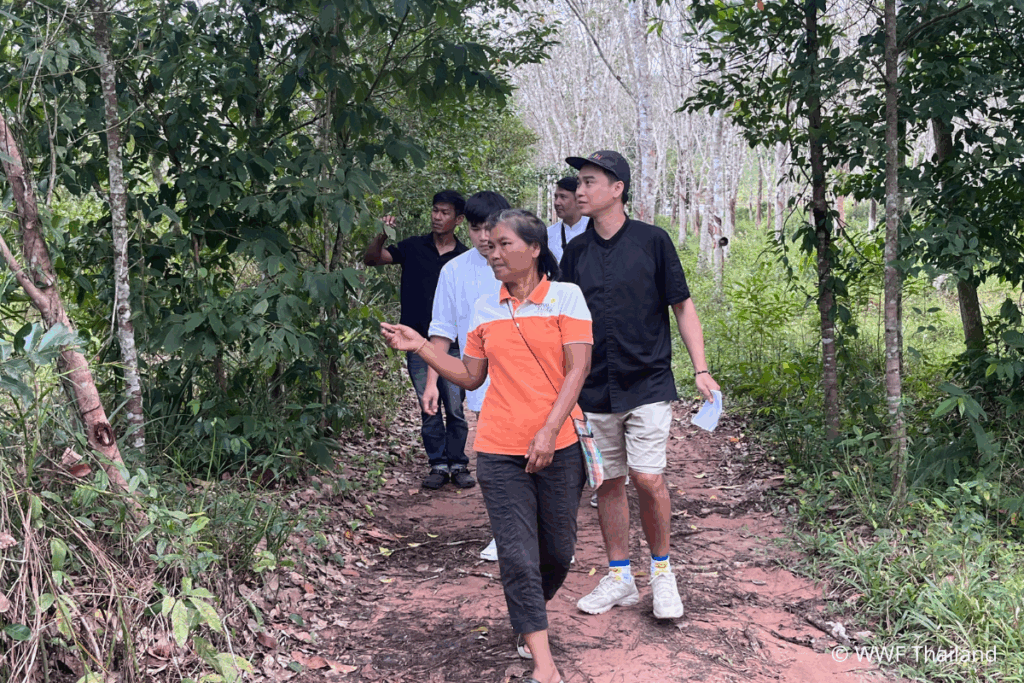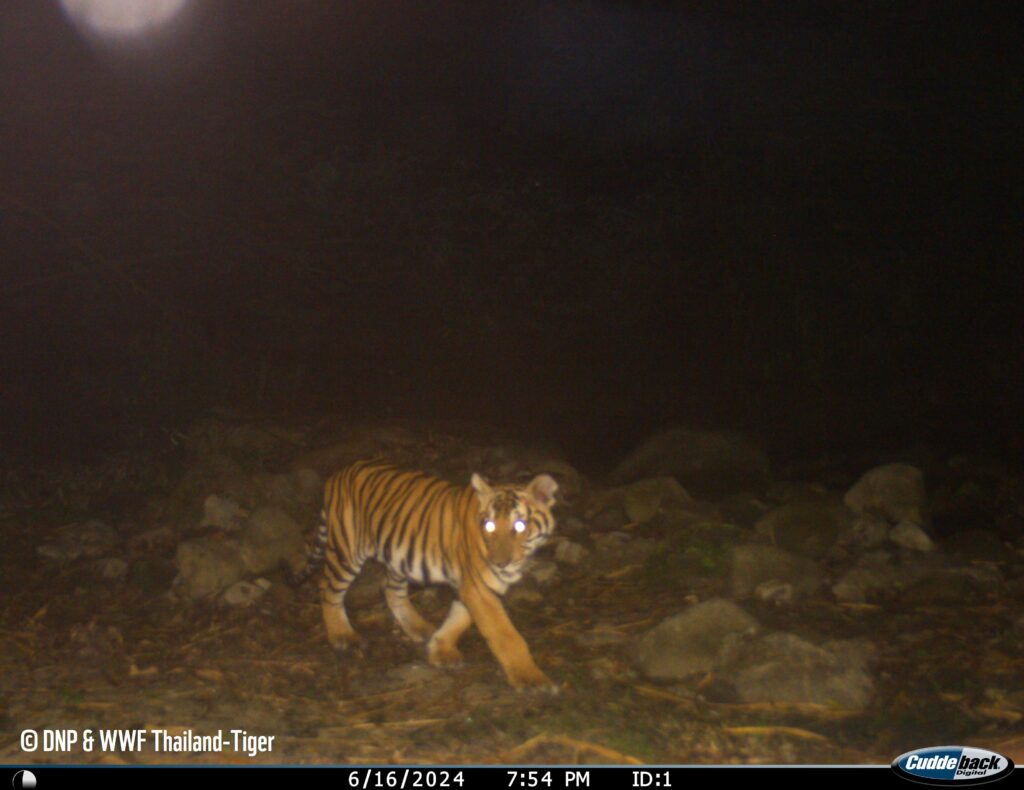WWF Thailand through the Sustainable Agriculture Foundation Thailand (SATHAI), helped connected the InterContinental Phuket Resort with members from the Alternative Agriculture Network (AAN) in the south of Thailand, particularly Songkhla, Phatthalung, and Nakhon Sri Thammarat Provinces. As part of our project, which aims at food systems transformation, we aimed to connect businesses to sustainable farmers in their area as a way of promoting local sourcing and biodiversity conservation.
Through connecting the AAN South farmers to the hotel, it allows them to work with and communicate directly with the chefs, including the executive chef of the hotel, which leads to better relationships, trust, and understanding. Through this method the hotels know exactly what indigenous produce they are able the purchase and when, while the farmers also know more about the needs of the hotel and its restaurants. Moreover, this relationship has also helped the hotel chefs learn more about the local produce, especially local wisdom and ethnobotany, from the producers directly. Chefs work with the farmers to understand the produce better, building upon their culinary knowledge and experiences as chefs to create dishes which respect the produces’ cultural origins and present them in a new light of high-end fine dining.
Examples of edible plants, at least 50 species, locally sourced through the initiative include Cleome leaves, Livistona shoots, Melinjo leaves, beehive gingers, torch gingers, Chilocostus flowers, Spanish needle flowers, water pennyworts, water hyacinths etc.

Natha Chaiphet, the AAN farmers, is bringing the chefs and hotel staff to roam around and seek edible plants naturally grown in rubber agro-forestrial plots in Thepha District, Songkhla Province.

The AAN farmers from Phatthalung and Nakhon Sri Thammarat are introducing edible plants in wetland and estuary ecosystems as well as sharing ethnobotanical knowledge to the hotel staff.

Saowanee Sutthichon is packing ingredients harvested from the AAN members in Phatthalung and Nakhon Sri Thammarat before delivering them to Phuket, some of produce derived from peat swamp forests.
Despites there being thousands of local Thai vegetables and plant varieties around the country, they are not consumed, or at times even commonly known. Other than reducing carbon emissions through helping businesses source their produce closer to their place of operations, through working together the farmers and hotel are also able to introduce some of these plant varieties to consumers.
Part of these plant varieties include both native and invasive edible plants, some of which are also more commonly known as weeds. While when it comes to weeds there are negative implications, the AAN farmers know that they are consumable. Many of them are used by locals as medicine or for other benefits. Therefore, this initiative also brings these commonly discarded crops and knowledge to the forefront.



Chef Nui – Chalermwut Srivorakul (centre) presents souvenirs to Natha Chaipetch and Saowanee Suttichon at Jaras Restaurant as the hotel opening the restaurant for the AAN farmers to witness the journey of their community’s ingredients to the hotel’s dining plates.
Chef Nui – Chalermwut Srivorakul of Jaras Restaurant at the InterContinental Phuket Resort said: “This initiative leads to menus where, in addition to the ingredients being chemical-free and seasonal, they also have health benefits. We gain an understanding of the spiritual value and environmental conservation efforts of the community through the ingredients sent directly from the farmers.”
Ja – Natha Chaiphet of the Alternative Agriculture Network (AAN) Southern Region, Thepha District, Songkhla Province, said: “Supplying our produce to the hotel allows the community to be self-reliant, increase their income, and support local ecosystems to be mutually beneficial. When villagers know that these weeds are marketable, they will keep them, not spray herbicides, and bring those weeds back to be used as food, which aligns with the ecosystem and creates a balance of nature.”
Ad – Saowanee Sutthichon of the Alternative Agriculture Network (AAN) Southern Region, Cha-uat District, Nakhon Si Thammarat Province, emphasised that “The communities have diverse natural resources in the area, but because they never utilise these unusable plants in their daily lives, the local plants slowly disappeared. When the hotel and the chefs started searching for local ingredients, it raised the community’s interest, making them see the importance of those plants. They then started taking care of them, planting more, and it opened up a broader perspective on how to cook and eat them in a wider variety of dishes.”
WWF Thailand through the Sustainable Consumption and Production (SCP) Project is trying to expand this initiative to other hotels and farmer groups around the country.





